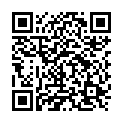|
|
|
| Module code: DBWI-350 |
|
|
- |
|
5 |
| Academic Year: 2 |
| Mandatory course: yes |
Language of instruction:
German |
Assessment:
Graded exam (Duration 90 min., 100 pts.)
The exam will be written in the 6th semester (Block 6A) according to the exam schedule (Industrial Engineering and Management, Bachelor, ASPO October 1, 2021).
The exam will be written in the 4th semester (Block 4A) according to examination schedule (Industrial Engineering and Management, Bachelor, ASPO October 1, 2022).
Prerequisites for receiving credits:
The achievement of at least 40 out of 100 points in the module exam.
The grade corresponds to the student’s performance in the module exam and is shown as a decimal grade according to the htw saar grading scheme.
[updated 08.04.2025]
|
DBWI-350 (P740-0035) Industrial Engineering / Production Management, Bachelor, ASPO 01.10.2022
, study year 2, mandatory course
DBWI-350 (P740-0035) Industrial Engineering / Production Management, Bachelor, ASPO 01.10.2021
, study year 3, mandatory course
|
|
The total student study time for this course is 150 hours.
|
Recommended prerequisites (modules):
None.
|
Recommended as prerequisite for:
|
Module coordinator:
Prof. Dr.-Ing. Jürgen Kohlrusch |
Lecturer: Prof. Dr.-Ing. Jürgen Kohlrusch
[updated 24.01.2023]
|
Learning outcomes:
After successfully completing this module, students will be familiar with the principles of creating a marketing mix. Using practical examples, they learn more about the range of marketing policy instruments, in particular product and pricing policy, as well as knowledge about market information procurement and customer behavior. This is followed by concepts for the strategic positioning of capital goods (B2B). Students will have insight into the activities of internal and external sales teams and be familiar with the functions and tasks involved in the technical sales of capital goods. They will also become acquainted with the possibilities of e-commerce. After successfully completing this module, they will be familiar with the similarities and differences online media have compared to traditional media, and know according to which legal basis they can use the internet, mobile apps and social media as a distribution channel. By the end of the course, students will be able to design an advertising, communication and marketing concept for different industries. They will be able to successfully position their company and its products on the market and know what sales measures are necessary to implement their concept in a targeted manner.
The “Marketing and Sales” module serves to expand and strengthen professional “knowledge and understanding” (broadening of knowledge) and instrumental skills. Together with the degree program’s scientific-technical and the business administration modules, students will achieve the competence to consider and solve interdisciplinary problems and tasks of medium complexity holistically at the interface between production engineering and business administration, and to independently design further learning processes.
[updated 08.04.2025]
|
Module content:
• Marketing mix
• Service policy, customer retention concepts
• Sectoral marketing, B2B versus B2C
• Building and protecting brands, image advertising
• Advertising psychology and control of advertising effectiveness
• AIDA concept, implementation in classic and online media
• Capital goods marketing
• Market research instruments
• USPs
• Porter´s strategies for competition
• E-commerce and the ins and outs of online marketing
• E-branding, search engine optimization (SEO), content management systems (CMS)
• Newsletter, Virales Marketing, Soziale Medien, Influencer-Marketing
• Difference between sales and marketing
• Distribution channels and sales channels
• Setting up sales organizations
• Internal and external sales tasks
• Designing and implementing trade fairs, exhibitions and campaigns
• Customer loyalty strategies
• Special features in the distribution of capital goods
• How to structure your offers
• Sales and complaint-related discussions
• Following-up leads
• Sales controlling
[updated 08.04.2025]
|
Teaching methods/Media:
Lectures: Lectures, demonstrations, question-and-answer teaching, discussion-based teaching with use cases, especially for a holistic approach to a problem, working on specific problems in groups
[updated 08.04.2025]
|
Recommended or required reading:
• Ch. Homburg: Marketingmanagement, Springer Gabler
• Ch. Homburg: Übungsbuch Marketingmanagement, Springer Gabler
• H. Meffert, Ch. Bumann, M. Kirchgeorg, M. Eisenbeiß: Marketing, Springer Gabler
• P. Winkelmann: Marketing and sales, Odenbourg Verlag
• M. Bruhn: Integrierte Unternehmens- und Markenkommunikation: Strategische Planung und operative Umsetzung, Schäffer Pöschel
[updated 08.04.2025]
|

